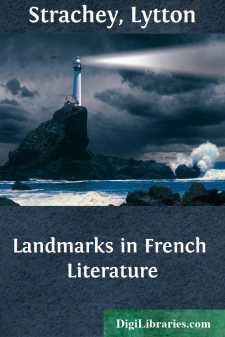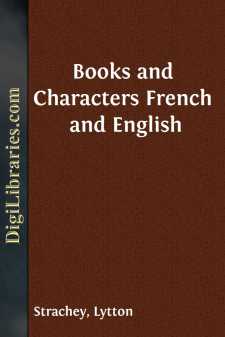Categories
- Antiques & Collectibles 13
- Architecture 36
- Art 48
- Bibles 22
- Biography & Autobiography 813
- Body, Mind & Spirit 141
- Business & Economics 28
- Children's Books 12
- Children's Fiction 9
- Computers 4
- Cooking 94
- Crafts & Hobbies 4
- Drama 346
- Education 46
- Family & Relationships 57
- Fiction 11826
- Games 19
- Gardening 17
- Health & Fitness 34
- History 1377
- House & Home 1
- Humor 147
- Juvenile Fiction 1873
- Juvenile Nonfiction 202
- Language Arts & Disciplines 88
- Law 16
- Literary Collections 686
- Literary Criticism 179
- Mathematics 13
- Medical 41
- Music 40
- Nature 179
- Non-Classifiable 1768
- Performing Arts 7
- Periodicals 1453
- Philosophy 64
- Photography 2
- Poetry 896
- Political Science 203
- Psychology 42
- Reference 154
- Religion 513
- Science 126
- Self-Help 83
- Social Science 81
- Sports & Recreation 34
- Study Aids 3
- Technology & Engineering 59
- Transportation 23
- Travel 463
- True Crime 29
Lytton Strachey
Lytton Strachey (1880–1932) was an influential English writer and biographer, best known for founding the Bloomsbury Group, a circle of intellectuals and artists. His most famous work, "Eminent Victorians" (1918), revolutionized the art of biography with its witty and critical portrayals of prominent Victorian figures. Strachey is also known for his biography "Queen Victoria" (1921), which presented a more nuanced and humanizing view of the monarch. His writing style, marked by irony and psychological insight, helped shape modern biography by challenging traditional, heroic representations of historical figures.
Author's Books:
Sort by:
by:
Lytton Strachey
CHAPTER I When the French nation gradually came into existence among the ruins of the Roman civilization in Gaul, a new language was at the same time slowly evolved. This language, in spite of the complex influences which went to the making of the nationality of France, was of a simple origin. With a very few exceptions, every word in the French vocabulary comes straight from the Latin. The influence...
more...
by:
Lytton Strachey
CHAPTER I. ANTECEDENTS I On November 6, 1817, died the Princess Charlotte, only child of the Prince Regent, and heir to the crown of England. Her short life had hardly been a happy one. By nature impulsive, capricious, and vehement, she had always longed for liberty; and she had never possessed it. She had been brought up among violent family quarrels, had been early separated from her disreputable and...
more...
by:
Lytton Strachey
RACINE When Ingres painted his vast 'Apotheosis of Homer,' he represented, grouped round the central throne, all the great poets of the ancient and modern worlds, with a single exception—Shakespeare. After some persuasion, he relented so far as to introduce into his picture a part of that offensive personage; and English visitors at the Louvre can now see, to their disgust or their...
more...




